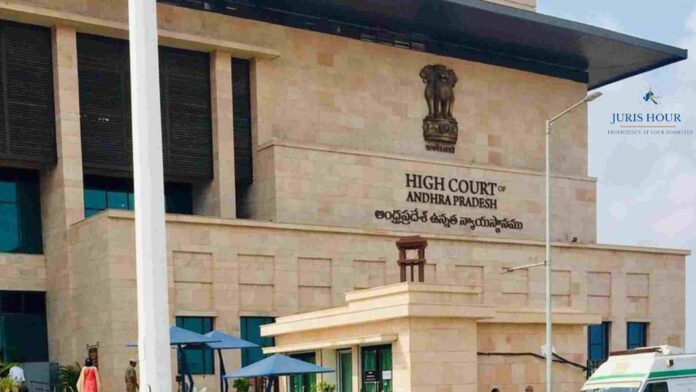The Andhra Pradesh High Court has quashed export duty on Domestic Tariff Area (DTA) to Special Economic Zones (SEZ) supplies.
The bench of Chief Justice Dhiraj Singh Thakur and Justice R. Raghunandan Rao has observed that in the absence of any delegation of power to the Central Government to levy customs duty on removal of goods from the Domestic Tariff Area to Special Economic Zone Unit, the Central Government in exercise of such delegated powers could not have thus envisaged levying a duty which is clearly without any authority of law.
The court held that 5th proviso to sub-rule (1) of Rule 27 of the Special Economic Zone Rules, 2006, as ultra vires the Special Economic Zone Act, 2005 and is accordingly, struck down.
Rule 27 of the Special Economic Zone Rules, 2006, deals with import and procurement by a Unit or Developer and envisages that it may import or procure from the Domestic Tariff Area without payment of duty, taxes or cess or procure from Domestic Tariff Area after availing export entitlements or procure from other Units in the same or other Special Economic Zone, all types of goods, including capital goods, raw materials, semi-finished goods component, consumables for making capital goods required for authorized operations except those which are prohibited under the Import Trade Control (Harmonized System) Classifications of Export and Import Items.
The 5th proviso to sub-rule (1) of Rule 27 of the Special Economic Zones Rules, 2006, which is under challenge in the present petition envisages thus, “Provided also that supplies from Domestic Tariff Area to Special Economic Zones shall attract export duty, in case export duty is leviable on items attracting export duty.”
The petitioner, M/s. TUF Metallurgical Private Limited, is a company, which is engaged in the business of manufacturing Low Carbon Ferro Chrome (LCFC) falling under “HSN Code – 7202 4900” from its unit which is located within the Andhra Pradesh Special Economic Zone (APSEZ). The entire production of LCFC is stated to be intended for export outside India. The primary raw material required for the manufacture of LCFC is Chrome Concentrate which falls under “HSN Code – 2610 0040”, which the petitioner procures from a mine located in Orissa, which is a part of the Domestic Tariff Area (D.T.A.) of India.
The petitioner claims to have made a request to the Development Commissioner, APSEZ at Visakhapatnam to procure Chrome Concentrate from the Domestic Tariff Area without payment of the prescribed export duty. The request was rejected by placing reliance upon the 5th proviso to sub-rule (1) of Rule 27 of the Special Economic Zones Rules, 2006.
The petitioner challenges the vires of the 5th proviso to sub-rule (1) of Rule 27 of the Special Economic Zones Rules, 2006, as also the decision, dated 26.04.2024, as being ultra vires the Special Economic Zones Act, 2005.
The Special Economic Zones Act, 2005, was enacted primarily for promoting exports through an expeditious single window approval mechanism and to make available goods and services free of taxes and duties supported by integrated infrastructure for such export production. It was found that while there were incentives provided, it did not attract Foreign and Direct Investments and it was only with a view to provide a suitable policy framework with minimum regulatory regime and a single window clearance mechanism that the enactment was envisaged and came into force.
The petitioner would submit that while Section 2(m)(ii) of the Act, 2005, deems a supply made from Domestic Tariff Area to Special Economic Zone as “Export‟, the same is made a legal fiction for the purposes of Special Economic Zones Act, 2005, and does not create a charge for export duty under the Act.
The petitioner contended that there was no charging provision for levy of export duty on supplies made from Domestic Tariff Area to Special Economic Zone unlike Section 30 which specifically envisages levy of customs duty on movement of goods from Special Economic Zone to Domestic Tariff Area and further that while the erstwhile Section 76F(a) of the Customs Act, 1962, specifically envisaged levy of export duty on supplies from Domestic Tariff Area to Special Economic Zone, the same was consciously made inoperative by the Legislature vide Section 52(1) of the Special Economic Zones Act, 2005, and further that even under the Customs Act, 1962, the omission of Chapter XA containing Section 76F reflected the legislative intent to not impose a levy on the supply of goods from Domestic Tariff Area to a Unit in the Special Economic Zone.
The department contended that a “Special Economic Zone” is to be construed as located “outside the customs territory of India” for authorized operations and therefore any supplies made from Units in a Domestic Tariff Area to a Unit in Special Economic Zone would attract customs duty, on the same analogy, as a clearance from a Special Economic Zone to Domestic Tariff Area is treated as an import which attracts import duty in terms of Section 30 of the Act, 2005, r/w Rule 47 of the Rules, 2006.
The court while allowing the petition held that a delegated power to legislate by making rules „for carrying out the purposes of the Act” is a general delegation without laying down any guidelines; it cannot be so exercised as to bring into existence substantive rights or obligations or disabilities not contemplated by the provisions of the Act itself.
Case Details
Case Title: M/s. TUF Metallurgical Private Limited Vs. Union of India and others
Case No.: Writ Petition No: 15528 Of 2024
Date: 18.09.2025
Counsel For Petitioner: Karan Talwar
Counsel For Respondent: Suresh Kumar Routhu, Sr. Panel Counsel
Read More: SC Declines to Quash ECIR Against Jacqueline Fernandez in Rs. 200 Crore Money Laundering Case

